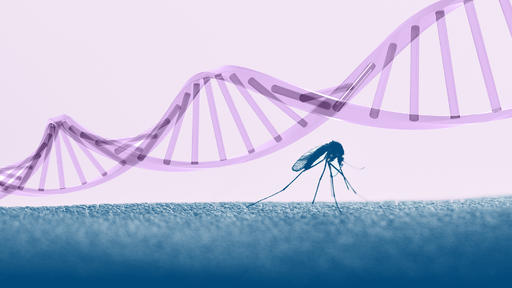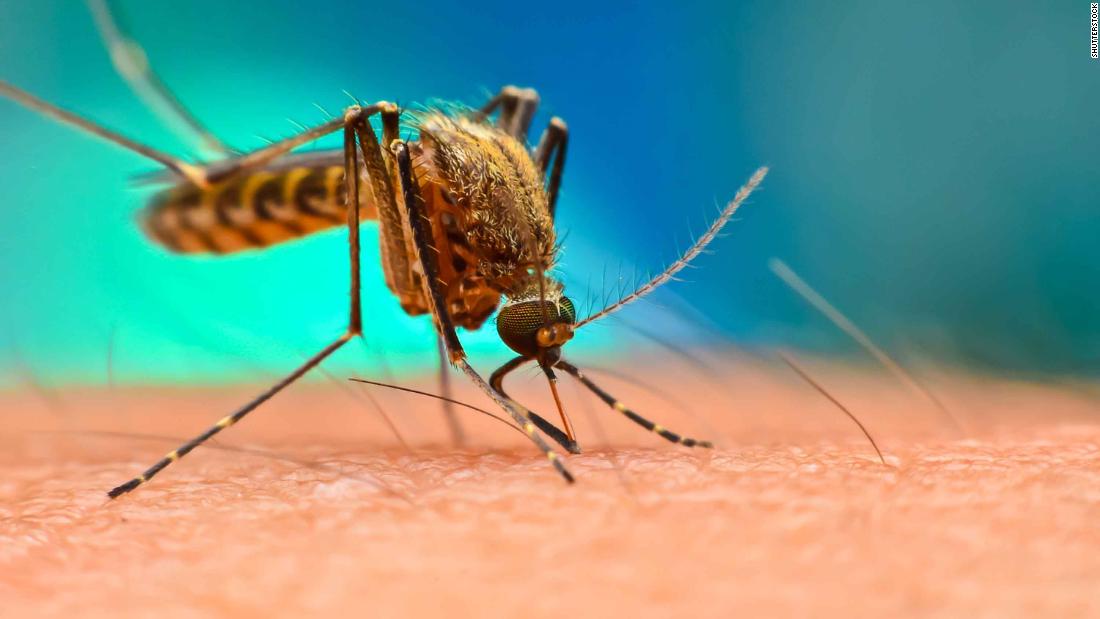News Without Politics follow up to the August story below. See the CDC report.
Original story:
750 Million Genetically Engineered Mosquitoes Are Being Released in Florida—Here’s Why
They won’t bite you, scientists say, and here’s why that’s important.

By Korin Miller of Health
Genetically engineered mosquitoes—750 million of them—will be released in the Florida Keys in 2021 and 2022. The pilot program, which was approved for “experimental use” by the Environmental Protection Agency (EPA) in May, will test to see if genetically engineered mosquitoes are a good pest control alternative to spraying insecticides.
The specific target is the Aedes aegypti mosquito, which can carry serious, potentially lethal diseases like the Zika virus, dengue, chikungunya, and yellow fever. The Florida Keys is currently dealing with an outbreak of dengue; 47 people have been infected so far this year, according to the Miami Herald.
RELATED: Skeeter Syndrome: This Allergic Reaction to Mosquitoes Is a Real Thing
But not everyone in the Florida Keys is thrilled about adding more mosquitoes into the area. Several residents and environmental advocacy groups have protested the plan. “The administration has used tax dollars and government resources for a Jurassic Park experiment,” Jaydee Hanson, policy director for the International Center for Technology Assessment and Center for Food Safety, said in a statement. “What could possibly go wrong? We don’t know, because EPA unlawfully refused to seriously analyze environmental risks, now without further review of the risks, the experiment can proceed.”
Some are even concerned that these genetically modified mosquitoes could end up creating wild hybrid mosquitoes that might increase the number of mosquito-borne illnesses in South Florida. There is precedent for that: One study, published in the journal Nature in 2019, details how these same genetically modified mosquitoes created a hybrid strain of mosquitoes, although the study’s authors says it’s “unclear” how this can impact the transmission of mosquito-borne diseases or efforts to control these mutant mosquitoes.
But Chad Huff, a spokesperson for the Florida Keys Mosquito Control District, tells Health that something needs to be done. “Aedes aegypti is becoming more and more resistant to pesticides applied by Florida Keys Mosquito Control,” he says. “It is extremely important that this organization explore other options for controlling this very dangerous mosquito that has made a lot of our local residents very sick.”
All of that said, it’s understandable that people have a few—or a ton of—questions about genetically modified mosquitoes. Here’s what you need to know.
RELATED: Can Mosquitoes Carry the Coronavirus? Here’s What Experts Say
What are genetically modified mosquitoes, exactly?
These mosquitoes were created by a company called Oxitec, and they will be released into the wild through “field tests,” the company says in a press release.
These particular mosquitoes are male, and they’re genetically modified to carry a protein that will “inhibit the survival of their female offspring when they mate with wild female mosquitoes,” Oxitec says. The male offspring will survive, though.
Mosquito fun fact: Only female mosquitoes bite people—the males eat flower nectar, Eva Buckner, PhD, a medical entomology extension specialist at the University of Florida, tells Health.
One thing Oxitec notes is that, since they’re only releasing male mosquitoes, they won’t bite and “will not pose a risk to people.” The company states: “it is also anticipated that there would be no adverse effects to animals such as bats and fish in the environment.”
This method has already been used in Brazil and “led to a 95% reduction in the local Aedes aegypti mosquito population,” Buckner says. “The efficacy of this technology has been demonstrated in prior small field trials,” she adds.
Another study, published in the journal Nature, tells how introducing genetically modified mosquitos in two islands in China reduced the female Asian tiger mosquito by up to 94%.
The World Health Organization (WHO) has weighed in on genetically modified mosquitoes as a method of mosquito control and calls it a “safe and potentially effective way” of reducing wild mosquito populations. Read more from Health.com
CDC From December 28th 2020
Genetically modified (GM) mosquitoes
Aedes aegypti mosquitoes spread viruses including dengue, Zika, and chikungunya. Aedes mosquitoes are common throughout many areas of the United States.
Aedes aegypti mosquitoes can be genetically modified and used to control other Ae. aegypti mosquitoes in a community. In the United States, the U.S. Environmental Protection Agency (EPA) has authorized use of OX5034 genetically modified Ae. aegypti mosquitoes for release in counties in Florida and Texas. This EPA authorization allows local mosquito control programs to evaluate how effective GM mosquitoes are in reducing Ae. aegypti mosquitoes in areas where they have been released.
How genetically modified (GM) mosquitoes are used to control Ae. aegypti mosquitoes
- Did You Know
- Only female mosquitoes bite. They need a blood meal to produce eggs.
- Male mosquitoes do not bite. They feed on nectar from flowers.
- A fluorescent marker gene that glows under a special red light. This allows researchers to identify GM mosquitoes from wild mosquitoes.
- A self-limiting gene that prevents female mosquito offspring from surviving to adulthood.
- GM male mosquito eggs that carry the self-limiting gene are released into an area. Once they have hatched and develop through to the adult stage, they are available to mate with wild females. The genes are passed on to offspring.
- The female offspring die before they become adults. As a result, the number of Ae. aegypti mosquitoes in the area decreases.
Effectiveness of GM mosquitoes in reducing numbers of mosquitoes
- GM mosquitoes have been successfully used in parts of Brazil, the Cayman Islands, Panama, and India to control Ae. aegypti mosquitoes. Since 2019, over 1 billion mosquitoes have been released.
- When GM mosquitoes stop being released into an area, the Ae. aegypti mosquito population will slowly return to “normal levels.”
- GM mosquitoes will only work to reduce numbers of target mosquito species (e.g., Ae. Aegypti), not other types of mosquitoes. Most communities have more than one type of mosquito.
GM mosquitoes do not pose a risk to people, animals, or the environment
The EPA evaluated the potential risk of releasing GM mosquitoes into communities and determined that there is no risk to people, animals, or the environment. For more information, see EPA’s Human Health and Ecological Risk Assessmentexternal icon.
GM mosquitoes for outbreak control
Release of GM mosquitoes is not intended to stop an outbreak. However, releasing GM mosquitoes over several months can reduce the number of a specific mosquito species, such as Ae. aegypti. We do know that the best way to control mosquitoes is to start before an outbreak happens.
GM mosquitoes and integrated mosquito management
Using GM mosquitoes may be more effective if used along with other mosquito control methods as part of an integrated mosquito management (IMM) approach, including:
- Educating the community about how they can control mosquitoes in and around their homes
- Conducting mosquito surveillance (tracking and monitoring the number of mosquitoes, types of mosquitoes in an area)
- Removing standing water where mosquitoes lay eggs
- Using larvicides and insecticides to control mosquito larvae, pupae, and adult mosquitoes
- Monitoring how effective mosquito programs are at reducing numbers of mosquitoes.





